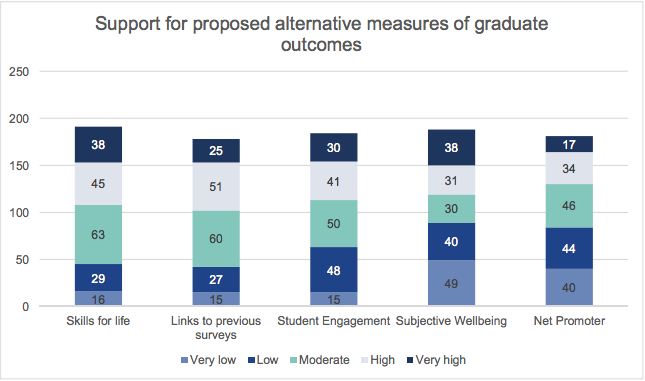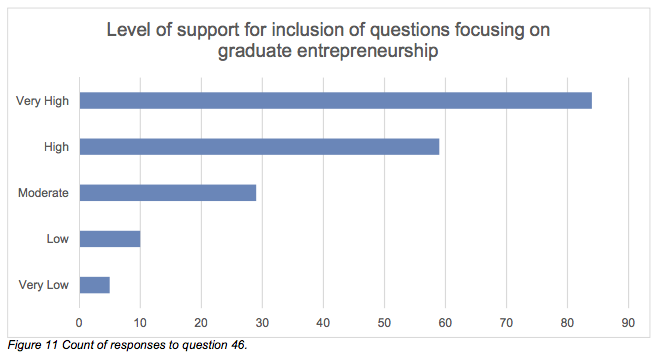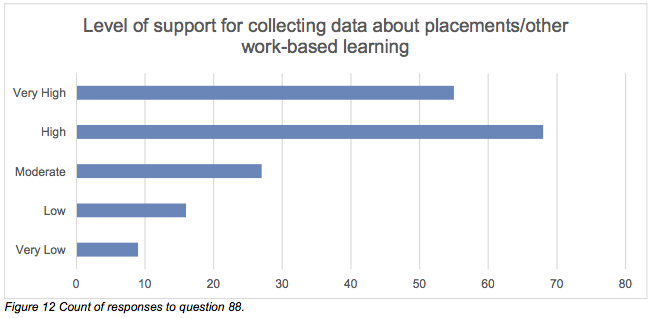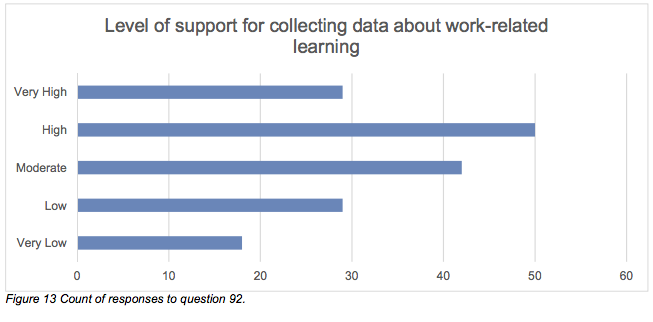 Yesterday, HESA published a paper synthesising just over 200 consultation responses submitted on the #NewDLHE questions, as well as two research reports (CFE’s ‘What do good outcomes from HE look like?’ and Warwick’s Institute for Employment’s ‘Richer Information on student views‘). The consultation’s aim was to inquire further into the collection of graduate destinations information, questioning the use of alternative potential sources such as HMRC tax data or from the Department of Work and Pensions benefit data. This sort of data collection – linked data – received 94% support from respondents, largely made up of HE providers with a 64% representation.
Yesterday, HESA published a paper synthesising just over 200 consultation responses submitted on the #NewDLHE questions, as well as two research reports (CFE’s ‘What do good outcomes from HE look like?’ and Warwick’s Institute for Employment’s ‘Richer Information on student views‘). The consultation’s aim was to inquire further into the collection of graduate destinations information, questioning the use of alternative potential sources such as HMRC tax data or from the Department of Work and Pensions benefit data. This sort of data collection – linked data – received 94% support from respondents, largely made up of HE providers with a 64% representation.
Following from this, the question was asked as to whether data needed to be contextualised with a survey, and whether this survey should be a census or sample of graduates. The aim was to explore whether other options to finding out graduate destination – i.e. less explicitly intrusive though arguably more implicitly so – could be used. Respondents were in overwhelming support that a survey is still critical to add more context for data provided, and that it should remain a census.
A list of proposals for additional measures to consider for the DHLE were:
- ‘Understanding a graduate’s perception of the value of their degree, or return on investment
- Identifying the link between degree subject and job taken
- More information about work experience
- Aspirations and whether these have been met by course/provider
- Job satisfaction or whether a graduate is in a ‘positive destination’
- More information on start-ups, business incubation and internships/preparedness for entrepreneurship
- Consistent terminology with TEF 2’s ‘highly skilled employment’ measures
- Expand skills to include attributes, experience, behaviours
- Social responsibility’

There was also clear support for questions focusing on graduate entrepreneurship, as many voiced that early-stage graduate entrepreneurs are not represented by current tax/welfare records.

Respondents were also keen to get data on whether graduates were involved with placements or other work-based learning.


Other questions explored included preferences for a single or multiple survey point system, or how long after graduation should success on employability and destination be scheduled. These are key questions as HE providers and other key stakeholders seek to capture the trajectory and progression of graduates within an increasingly complex work place. Graduates are increasingly engaged with some form of freelancing, independent or project-based work which is not properly represented in the very rigid and inflexible framework of DLHE. As we aim to prepare our students for employability, enterprise and entrepreneurship skillsets are seen more as critical for the future economy.